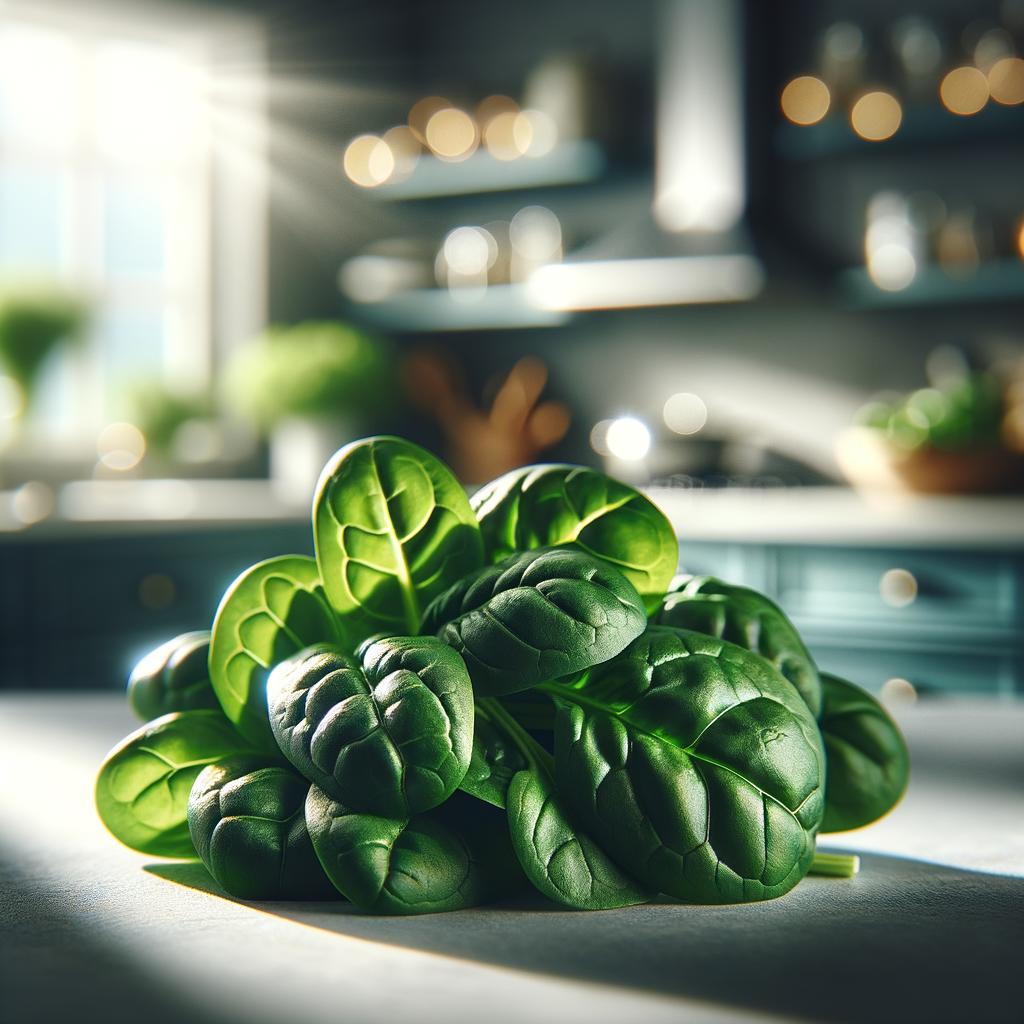Baby Spinach

Description Meet baby spinach, the tender, delicate, and younger version of the mature spinach we're all familiar with. Its leaves are small, smooth, and a vibrant shade of emerald green that is pleasing to the eye. Baby spinach is known for its soft texture that melts in your mouth, leaving a mildly sweet and slightly earthy flavor behind. Unlike mature spinach, which can be quite fibrous and bitter, baby spinach is delicate and more palatable. Its unique characteristic lies in its versatility; it can be enjoyed raw or cooked, retaining its nutritional value either way.
Primary Uses Baby spinach is a versatile ingredient that finds its way into a multitude of culinary creations. It can be used fresh in salads, sandwiches, and smoothies, providing a nutritional boost without overpowering other flavors. You'll find it as a key component in a variety of cuisines, from the classic Italian 'spinaci alla fiorentina' to the comforting Indian 'palak paneer'. In addition to its culinary uses, baby spinach is often used in natural medicine for its high nutrient content. It's also a symbol of strength, thanks to the popular cartoon character Popeye, who gains superhuman strength after consuming spinach.
History Spinach has a rich and intriguing history. It originated in ancient Persia (modern-day Iran) and made its way to China in the 7th century, where it was known as "the Persian vegetable". It arrived in Europe in the 11th century and quickly became a popular vegetable in Mediterranean cuisines. Baby spinach, however, gained popularity in the late 20th century as consumers sought tender, easy-to-eat greens for salads and quick cooking. The story of spinach is often associated with the myth that it contains a large amount of iron. This originated from a misplaced decimal point in a study from the 19th century, which was later corrected, but not before spinach had already gained its reputation as a powerhouse of iron.
Nutritional Information Baby spinach is a nutritional powerhouse packed with a plethora of vitamins and minerals. It is rich in vitamins A, C, and K, and minerals like iron, calcium, and magnesium. It's also a good source of dietary fiber and plant-based protein. The consumption of baby spinach can aid in eye health, boost immunity, and promote healthy skin. Compared to mature spinach, baby spinach is easier to digest and contains slightly less fiber and more folate. Its low-calorie profile and high nutrient density make it a favorite among those seeking to maintain a balanced diet. So, whether you're a hard-core foodie or a health enthusiast, baby spinach has a place in your kitchen and your heart.

